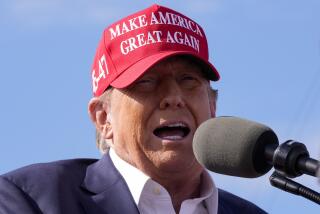Inauguration flip-flop
Time and again, President Obama has promised to curb the power of special interests, a stance more consistently breached than honored. The latest — which comes after Obama reneged on his pledge to accept only public financing for the 2008 general election if his GOP opponent did the same, and after his reelection campaign in early 2012 began urging donors to send money to a super-PAC, a financing mechanism he had spent years decrying — is his decision to accept corporate money to pay for events at the presidential inauguration this month.
It’s a notable shift from four years ago, when the newly elected president limited individual contributions to $50,000 and barred corporate entities entirely; this year, the Presidential Inaugural Committee cares less about where the money comes from than whether it’s green, accepting unlimited donations from corporations or individuals. This has good-government organizations up in arms, not to mention conservative groups that accuse the president of hypocrisy. They aren’t wrong, even if their cause is a little overblown.
On the subject of hypocrisy, Obama does have a disturbing tendency to harshly criticize his opponents for behavior that he later imitates; that may not be terribly unusual in presidential politics, but it at least seems worthy of note, or an explanation, or even an apology. On the subject of good governance, the inauguration decision sets yet another terrible precedent, signaling to insiders that the president’s rhetoric about curbing special interests is nothing more than campaign blather to be swiftly ignored after the oath of office is administered — or in this case, even before.
Yet now that we’ve almost managed to work up a head of steam about the inauguration switch … comes the crashing realization that it doesn’t really make much difference. The events hosted by the Presidential Inauguration Committee — the swearing-in ceremony, a parade and assorted balls — represent only a tiny portion of the Inauguration Day activities. They will go off without a hitch just as they did in 2009. And despite the committee’s precautions that year, it’s unlikely that the ban on corporate contributions led to much of a reduction in lobbying; most of the money raised by the inauguration committee came from bundlers working for Wall Street firms such as Goldman Sachs that were then in need of government assistance.
Symbolism is everything. In 2009, corporate America was being blamed for causing the economic downturn and Obama was elected with a mandate to crack down. Today, he may be seeking to mend fences and bring CEOs back to the negotiating table after a bruising campaign pitting “job creators” against the working man and woman. Or maybe he’s just being two-faced.
More to Read
A cure for the common opinion
Get thought-provoking perspectives with our weekly newsletter.
You may occasionally receive promotional content from the Los Angeles Times.










